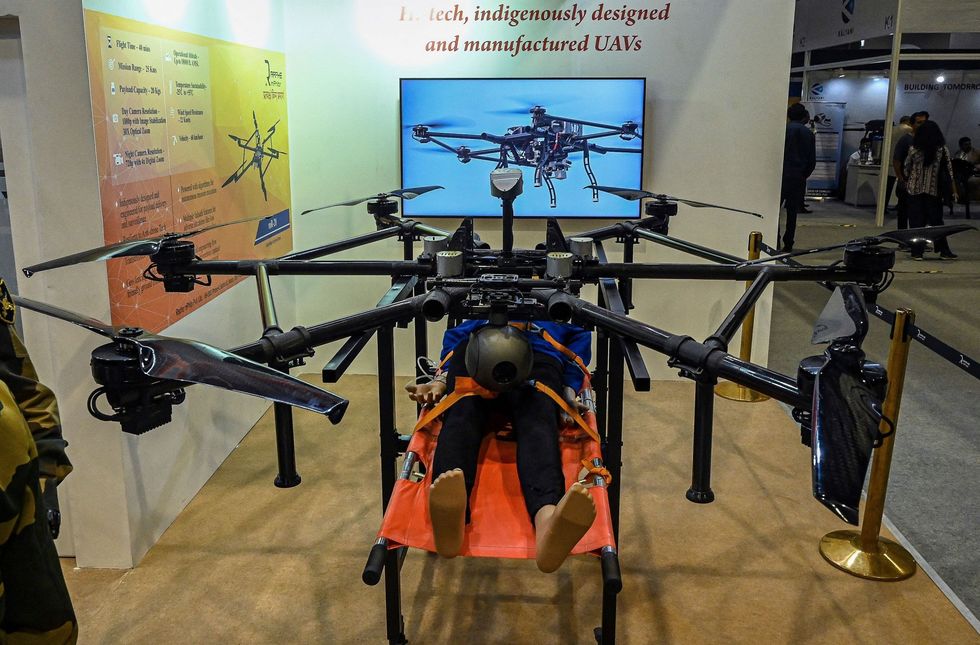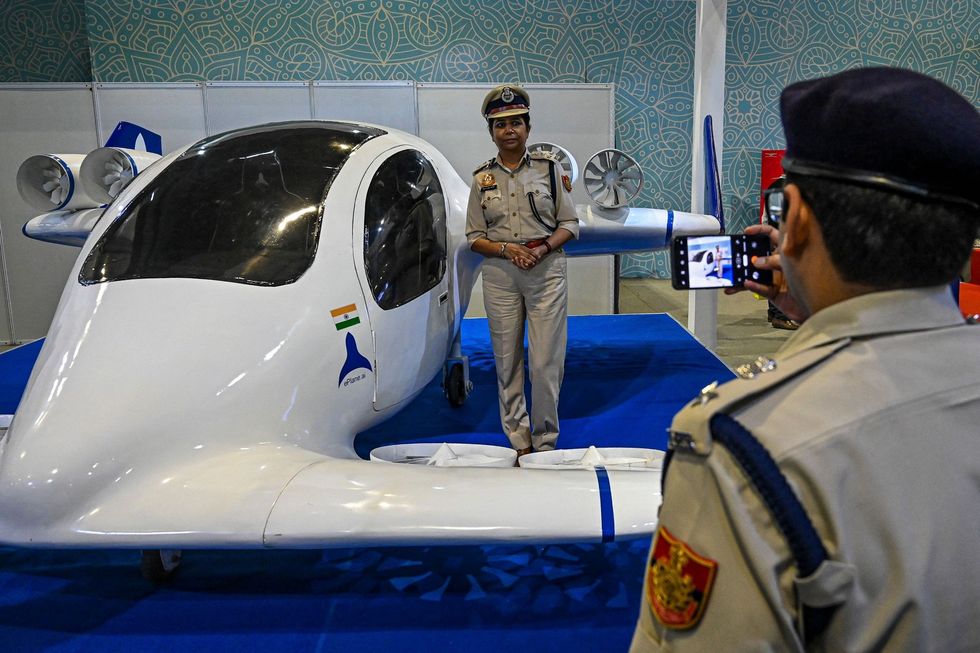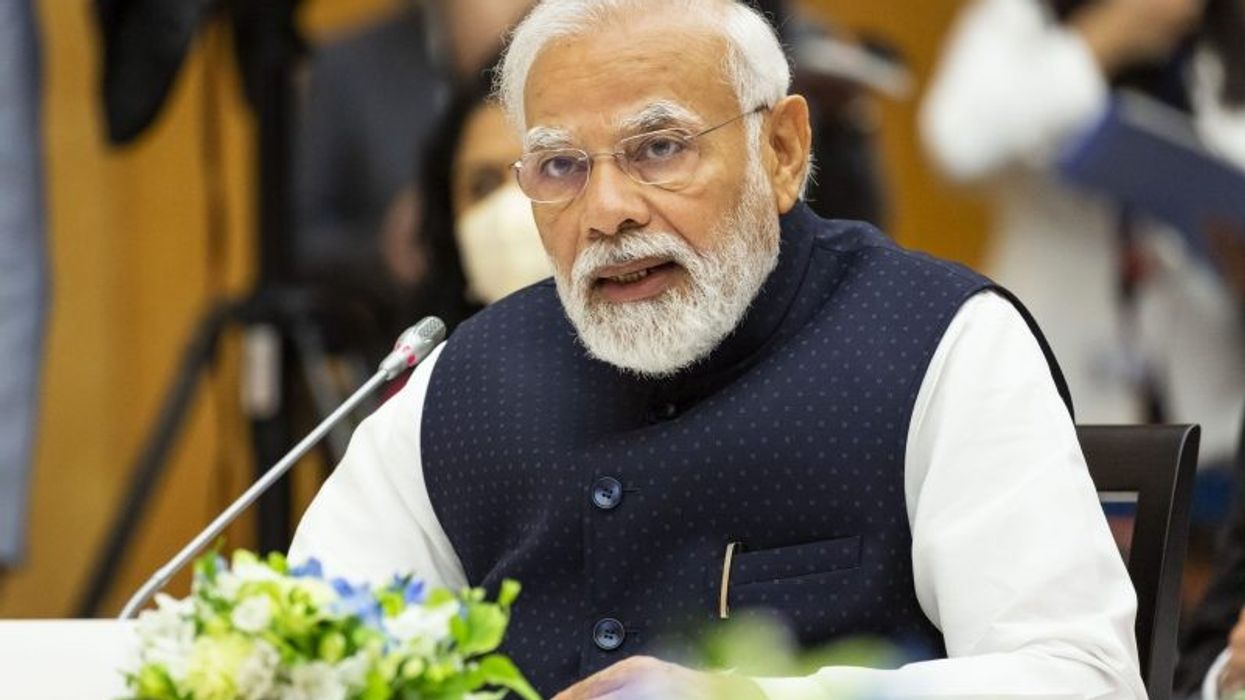There was an environment of "indifference" towards the use of technology in governance before 2014 due to which the poor and the middle class suffered the most, Prime Minister Narendra Modi said today.
He asserted the current government has ensured last-mile delivery of services with the help of technology, including drones.
Addressing a gathering after inaugurating India's biggest drone festival in Delhi, he said, "At a time when we are celebrating Azadi ka Amrit Mahotsav, it is my dream that everyone in India should have a smartphone in his or her hand, every farm should have a drone and every house should have prosperity." The enthusiasm being seen in India about drone technology is amazing and indicates possibilities of an emerging sector of employment generation, the prime minister said.
He said eight years ago "we started implementing new mantras of good governance". "Walking on the path of minimum government and maximum governance, priority was given to ease of living and ease of doing business," PM Modi said.
During the earlier governments, technology was considered a part of the problem and efforts were made to label it "anti-poor", the Prime Minister said.
"Due to this, there was an environment of indifference towards the use of technology in governance before 2014. The poor, the deprived, the middle class suffered the most," he said.

There was a time when people used to spend hours standing in line for rations. In the last seven to eight years, we have removed this hurdle with the help of technology, PM Modi said.
Claiming that earlier technological inventions were considered to be for the elite only, the prime minister said, "Today, we are ensuring that the masses are the first beneficiaries of any new technology. Drone technology is one such example." Technology has helped a lot in ensuring the last-mile delivery of services, he said.
PM Swamitva Yojana is an example of how drone technology is becoming the basis of a big revolution, he said, adding under it, for the first time every property in villages is being digitally mapped and 65 lakh digital property cards have been given to people.
PM Modi also said the use of drones will rise in sectors such as agriculture, sports, defence and disaster management.
Till a few months ago, there were various restrictions on drone technology. The Centre has removed such restrictions in a short span, PM Modi said.
He was referring to the Ministry of Civil Aviation's easing of Drone Rules in August last year, wherein it had reduced the number of forms that need to be filled to operate them from 25 to five and decreased the types of fees charged from the operator from 72 to four.
The Prime Minister said his government was strengthening the network of health and wellness centres across the country.

Noting that delivery of medicines and other items in villages has always been a challenge, PM Modi said, "Delivery of such items with the help of drones will be very fast." He said the country has been witness to the quick delivery of COVID-19 vaccine through drones. "This (a drone) can help us send top-quality medical equipment and services to remote areas." People will see that not only in urban areas, drones have found their use in rural areas too, the prime minister said.
"I invite investors again as this is the right time to manufacture advanced drone technology for India and the world," the prime minister said.
He asked the youth to develop many more startups in the drone sector and expressed confidence that the police forces of the country will find drones useful.
"Whenever there are big events like the Kumbh Mela, the drones can be of immense help. In traffic jams, solutions can be found with the help of drones," the prime minister said.
'Bharat Drone Mahotsav 2022' is a two-day event being held on May 27 and 28. Along with Modi, Civil Aviation Minister Jyotiraditya Scindia, Health Minister Mansukh Mandaviya, Railway Minister Ashwini Vaishnaw, Environment Minister Bhupender Yadav and Rural Development Minister Giriraj Singh were present at the inaugural event.
Addressing the event, Mr Scindia said nothing is greater than an idea whose time has come and drone is one such idea.
India used to be a follower in the technology sector but now it has become a leader, Mr Scindia said, adding technology will become successful only when it comes to the benefit of the less privileged and the poor.
He talked about how drones are used for land mapping in villages under the Centre's Swamitva Scheme which was launched by the prime minister in April 2021.
"A drone of just two to three kg will help in the government's plan to push 'gram swaraj' (self-reliant village) in India," Mr Scindia said, adding the government has banned the import of drones in February to give domestic manufacturers a push.
Mr Scindia talked about various steps the government has taken during the last two years to boost the manufacturing and use of drones in the country.
Currently, 12 departments of the central government and 14 state governments have adopted drones and are using them, he said. Over 1,600 delegates comprising government officials, foreign diplomats, armed forces, central armed police forces, public sector undertakings, private companies and drone startups will participate in the festival.
Courtesy: PTI












